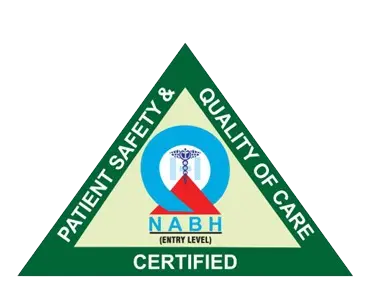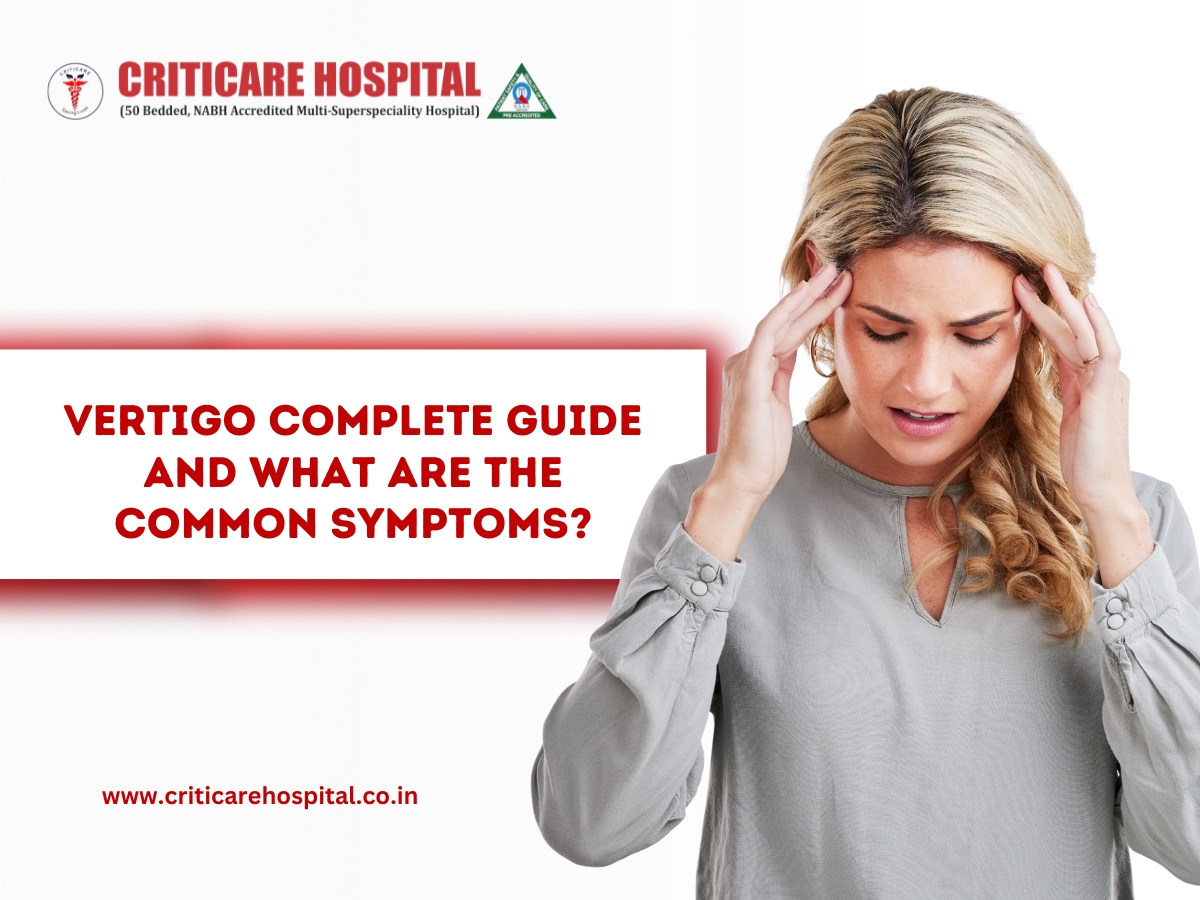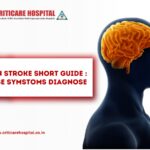It is sometimes uncomfortable, sometimes frightening, when the room you are sitting in appears to turn in every direction when you have not moved a bit. This peculiar sensation may be called vertigo, but it is not dizziness, which one can occasionally experience. Some people may find it just an inconvenience; for others, it can get in the way of their normal life and their quality of life.
Our philosophy at the CritiCare Hospital Lucknow is that knowing about vertigo is the initial step to locating the most appropriate treatment. This guide will tell all about vertigo, including its causes and symptoms, its diagnosis, and related topics, in simple, clear language that anyone, including a layperson, can understand.
What Is Vertigo?
Vertigo is the sensation of motion. Individuals with it can also have a sensation of spinning, tilting, swaying, or of the surroundings being in motion. One must remember that vertigo is not an illness on its own, but a side effect of something. In many cases, vertigo occurs due to the inner ear, brain, or sensory nerves.
While some may claim that they are dizzy when they are hit by vertigo, the two are not similar. Dizziness is a directionless sense of lightheadedness or unsteadiness, and vertigo is the perception of movement.
How Does Balance Normally Work?
Vertigo can be explained only when you learn how your body balances itself. Three main systems are in control of balance:
- Inner Ear (Vestibular System): The inner ear detects movements and the position of the head.
- The Eyes: Give information that you have with your eyes.
- Sensory Nerves: Transmit messages from the muscles and joints to the brain about their position in the body.
When it happens that these systems execute their functions harmoniously, you become stable and stable. However, when the wrong signals are sent by one system, the brain becomes confused, and this is when vertigo may occur.
Reasons for Vertigo
There are plenty of reasons why vertigo may take place. Others can be short-term and harmless, and some might require medical care.
- Middle Ear Diseases
Your inner ear has fluid that fills up canals, as well as its small crystals, so that you can feel the movement. Problems in this area are the most widespread cause of vertigo.
- Benign Paroxysmal Positional Vertigo (BPPV): This is what can happen when dispersed crystals in the ear become loose and move in places they should not. This may lead to spinning feelings that are initiated by movements of the head.
- Labyrinthitis: Causes infection or inflammation of the inner ear, most commonly after a cold or the flu.
- Vestibular Neuritis: It is the inflammation of a nerve connecting the inner ear with the brain, and this nerve is called the vestibular nerve.
- Meniere’s Disease: That is one that causes the inner ear to be flooded with fluids, causing vertigo, hearing loss and ringing in the ear.
- Brain Troubles
Vertigo is also elicited by some brain disorders:
- Migraine-Associated Vertigo: Migraine patients may develop vertigo in the form of pre-headache, during a headache, or post-headache.
- Stroke or Transient Ischemic Attack (TIA): Poor supply of blood to the balance parts of the brain.
- Multiple Sclerosis (MS): A disease which influences the signals of nerves and, in some cases, leads to vertigo.
- Other Causes
- Head or Neck Injury: or damage to balance signals.
- Some Medications- Usually, some antibiotics, diuretics or anticancer drugs can result in vertigo as a side effect.
- Low Blood Pressure. There can be a low-pressure situation that makes one feel like they are spinning.
What is vertigo like?
A person/the experience of vertigo may vary. Others feel as though the room is spinning round unimaginably fast, others describe it as a smooth rocking.
Typical feelings are:
- The feeling of spinning or moving (can be when motionless)
- Balancing or tilting
- Being yanked off to one side
- Balance loss
- Afraid of falling invalidated
Vertigo is often related to:
- Vomiting or Nausea
- Sweating
- Headache
- Sound in the ears (tinnitus)
- Hearing loss
- Alteration in eye movements (nystagmus)
The duration of the symptoms may be a few seconds and a couple of minutes, or even a few hours, depending on the cause.
Common symptoms to look for:
Although vertigo is the symptom, certain signs accompany it, and you should not disregard them, particularly when they manifest themselves suddenly:
- Severe headache
- Trouble speaking
- Dullness, paralysis in the face or the limbs
- Double vision
- Difficulty walking
- Abrupt decrease in hearing
These symptoms and vertigo combined are a sign of seeking medical attention as soon as possible, since they can indicate a stroke or any other serious illness.
Diagnosis of Vertigo: How Is Vertigo Diagnosed?
At CritiCare Hospital, our physicians first carefully listen to your history and the complaints of ailments. Given that among the possible causes of vertigo, there are many, the diagnosis is based on eliminating the presence of multiple types of conditions.
- Physical Examination: Your physician can examine:
- Eye movements
- Balance and coordination
- Ear health
- Positional Tests: Dix-Hallpike Manoeuvre: This is used to diagnose BPPV; the movement places you in certain positions to assess whether vertigo is induced.
- Hearing Tests: To determine whether there is a connection between hearing loss and vertigo.
- Imaging Tests: When a problem that involves the brain is suspected, an MRI or computed tomography may be ordered.
Treatment Options for Vertigo
Therapy is based on the cause.
- BPPV: Special body and head movements (Epley manoeuvre) may assist in getting the ear crystals back into position.
- Infections: May need medications such as antibiotics or anti-inflammatories.
- Mneners Disease: It is treated by diet, etc, by drugs, or occasionally by operation.
- Migraines: These are cured through migraine-specific interventions.
- Balance Rehabilitation: strength exercises to increase your balance system.
Coping with Vertigo
Vertigo can be disruptive, although the majority of them would respond to good treatment. These are some of the self-care I can provide:
- Move slowly across and do not move your head suddenly.
- Fall prevention in the home with good lighting.
- As soon as you feel dizzy, sit down.
- Eat regularly and drink water.
- Restrictively consume caffeine, alcohol and salt where recommended by your physician.
Seek Medical assistance. How and when
Whenever in doubt:
- Vertigo is frequent or aggravated.
- You suffer from hearing loss or tinnitus (ringing in the ears).
- You have neurological symptoms (weakness, alteration in speech, visual trouble).
Conclusion
Vertigo can be fierce, and in spite of that, given a proper diagnosis and treatment, it can be well managed. The trick here is to listen to your symptoms, do not diagnose yourself, and consult a professional. Our team of specialists has the latest in diagnostic equipment and approaches to treatment to enable you to find your balance, both physically and emotionally, again at CritiCare Hospital.
If you or anyone you love is having trouble with vertigo, there is no time like the present. The difference can be enormous with early intervention and quality of life.




